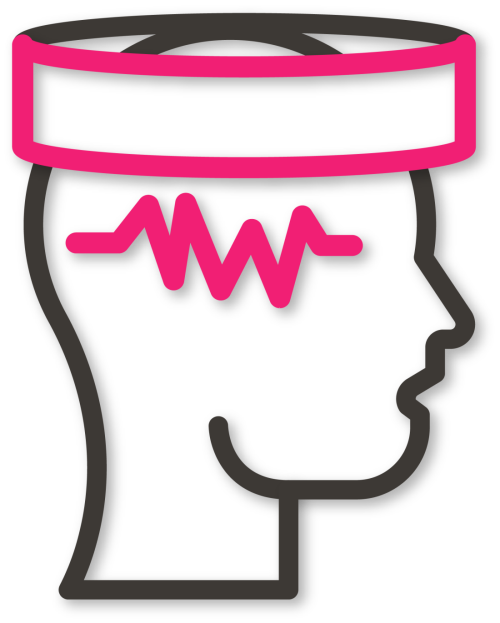
Neuroscience Surveys
Engagement in the workplace can be linked with the challenges a person experiences at work. Challenge is associated with the Reflective brain system in our neuroscience model.
If you've just landed here, we recommend heading over to our brain systems and neuroscience themes pages for a clearer understanding of our neuroscience model and why we're drilling down into this area. Otherwise, read on to find out how employee engagement can be driven by workplace challenges.
To maintain a sense of momentum, we need to feel appropriately challenged in our roles. The key to achieving the right balance is feeling a little outside of our comfort zone so that we can engage our broader potential to succeed. But if we go too far out of our comfort zones, we risk retreating into survival mode and resisting change and new demands.

When you're in a leadership role, there's an expectation that you have all of the answers. But change means we're in an unknown space. So embrace it and adopt an outlook of experimentation.
In an HR space, we should hold rules and complex governance as guardrails instead of blockades. Be open to flexibility while testing and rethinking your approach. It's important to keep everyone close and communicate, communicate, communicate. You can never over-communicate. It gives people a sense of where we are now, even if we’re not quite sure where everything will be in the future.
We haven't always had this cycle of learning, unlearning and relearning because we stuck to the rules and the old way of doing things. We're having to learn a new way of showing up. It's about how you challenge yourself. How you take ownership of your craft and your development and how you build your career. It's not relying on the system to say you're great - it's genuine curiosity, self-belief and self-determination.
The concept of the growth mindset is challenging yourself to have the next thing to look forward to. Set personal goals for yourself because when you feel good about yourself, you'll show up in a better way for the organisation. So a growth mindset is very important in the hard times to have meaningful, deliberate, intentional actions towards something that will help you get to where you need to go.
The story we tell ourselves can sometimes hinder us, specifically if the story is about seeking permission. Many people struggle with this because we have a particular relationship with hierarchy or authority. We tend to grow up in hierarchical, patriarchal societies. People see something wrong they can fix or an initiative they can do, but they want permission.
The starting point is realising you don't need permission to make a change. Because when we seek permission and it doesn't come, there's a power dynamic at play. You can unlock so much more when you realise you can choose for yourself.
We have much more power and opportunity to influence and shape conversations if we don't trip ourselves up by believing someone has to give us permission to speak up. We can own that space and speak from a genuine place of interest and curiosity. Eventually, this gives us authority. We have the experience and knowledge, so we don't have to wait for someone to provide us with an opportunity to show up.
Begin with open lines of communication and platforms for people to reflect on the change and see its progression. This provides an opportunity for everyone to expand on their genuine feelings about the change. Fear and the sense of the unknown are normal. Once people are empowered with information and communication around the reason for the change and can see the progress, it tends to become less scary.
As a change leader, be open to the reality that some people will stay scared or potentially derail the change. But the goal is to bring as many people as possible toward the change while at the same time remembering they have their own agenda. It's fine for people to make other choices as long as they have all the information, so it becomes an informed decision rather than one based on fear.
There's a perception that executives in dark rooms make epic decisions. So in an organisation with layers of executives and leadership, bring the information down to the lowest level. If you've got team leaders or supervisors, how do you expand the lines of accountability so that leadership is more than just the top team. Expand the idea that everyone is a leader across all levels. Then cascade the flow of information.
The most disempowering situation is when someone with supervisory leadership opportunities feels left out because no one listened to them. You want your people closest to the ground to have a real sense of how information is channelled up the chains so everyone can understand what is driving the change. Help people feel like they are a part of the change instead of change is happening to them.
Create a challenging environment without making it seem difficult. When we are challenged, it motivates, drives and creates new mindsets. When you're able to solve issues, you are building resilience and tenacity. But this requires an intimate understanding of people's capability and potential because the fine line is not to burn them out or frustrate them. It's about being intentional and doing more because, with personal growth or the growth mindset, challenges play a big role. For many people, especially in long-service organisations, it's tempting and easy to stay in a bubble. Be intentional about getting outside that bubble to stretch yourself.
Tensions and cost-efficiency discussions will continue to impact people and filling vacancies. There's tension around recognising and addressing issues like wellbeing and burnout, so the next couple of years will be difficult. The balance we need to continue to hold up high is addressing tensions while showing empathy and remembering we're part of a bigger business.
Understanding the new people landscape and that there is more than one clear definition of the 'best'. People who were great once upon a time in certain aspects are now being challenged. And those entering new spaces are also challenging established spaces. There's a shift in terms of identity, which is exciting.
*This is an excerpt from the Happiness and Humans Podcast with Njabulo Mashigo, Executive Director, Human Resources, Vodacom South Africa.

Linked to Engagement in our neuroscience methodology... learn more
The Happiness Index helps organisations measure the key employee engagement AND happiness drivers to power their people strategy.
Our unique platform offers the products, insights and tools to shine a light on your cultural health and empower management to drive thriving cultures.
Our neuroscience-based pre-built surveys measure the full employee experience - from onboarding to exit to empower and enable organisations to understand their people and create data-led action plans.
